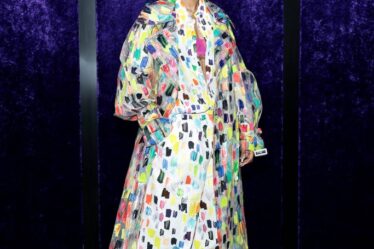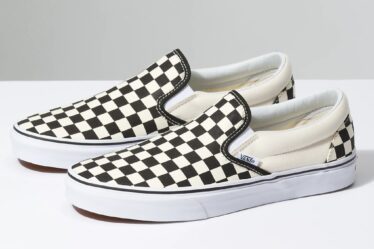
Fast Retailing Co., home of the Uniqlo brand, wants to ramp up the presence of its other fashion label GU in the US and Europe, as Asiaâs largest apparel maker accelerates efforts to become a global retailer with Â¥10 trillion ($66.6 billion) in annual sales.
âGU has the same potential as Uniqlo,â chief financial officer Takeshi Okazaki said in an interview. âWe can generate as many GU stores as there are Uniqlo ones.â
The brand, pronounced as the letters G and U, sounds the same as the word jiyu, or âfreedom,â in Japanese. While GU, with slightly lower prices than Uniqlo and clothes aimed at younger clientele, has a solid presence in Japan, itâs less known in other major markets. Building its presence abroad is part of Fast Retailing founder Tadashi Yanaiâs push to âbecome a true global player,â by first doubling annual profit to Â¥5 trillion within a few years.
Thatâs set to include about Â¥700 billion from GU, Okazaki said. The brand has already made an initial foray into North America, opening its first pop-up store in New York Cityâs SoHo district in 2022.
âWe want to make GU a store thatâs overflowing with trendy products that are easily affordable, and that makes people feel like they want to enjoy fashion,â Okazaki said. âTo achieve this, we canât just stay within Japan.â
Thatâs the big hurdle, according to Dairo Murata, senior analyst at JPMorgan Securities Japan Co.
âCompared with Uniqlo, which sells the ultimate everyday wear to a wide age group, GUâs market will be limited by definition because it sells fashion to those aged 10 to 30,â Murata said. âTo reach their mid-term goal of reaching Â¥1 trillion in GU sales, they will have to break into overseas markets, which wonât be easy.â
Thereâs a synergy between GU and Uniqlo that makes it easier to open GU stores by leveraging what Fast Retailing has already done with Uniqlo, according to the CFO. The company will make sure to cater to international preferences, while seeking to avoid an increase in the number of product types they sell, he said.
âIf this was 10 years ago we couldnât do this, but peopleâs information and the trends of clothes is becoming quite shared internationally,â Okazaki said. âSometimes we have to add a certain thing, but for the most part, we control the overall number of products and make them globally applicable.â
Western competitors who are already well-established, such as H&M, Zara and Gap, also present an obstacle. Hennes & Mauritz AB already has more than 2,500 stores across the Nordics and Europe and more than 700 in North and South America through its various brands.
What Bloomberg Intelligence Says
âFast Retailing needs to expand its flagship Uniqlo chain globally to boost revenue and profit, we believe, as its growth in Japan is threatened by a shrinking population. This could limit Uniqloâs same-store-sales growth in the country even as local wages expand. Fast Retailingâs GU label, which focuses on low-priced casual wear, could become a second growth engine,â says analysts Catherine Lim and Trini Tan.
So far, efforts to expand outside Japan and Asia are paying off, with sales in the US and Europe helping to deliver stronger-than-projected operating profit in the first fiscal quarter, which ended in November. Fast Retailing is planning on accelerating openings of new Uniqlo stores to 20 in North America and 10 in Europe each year, according to its fiscal year-end report.
âGlobally, the places that have leadership in fashion are of course Europe and America,â Okazaki said.
So far, the overseas push has delighted investors, with the shares outperforming 10 other clothing companies worldwide with a market value of more than $10 billion over the past year, according to data compiled by Bloomberg. The stock has already gained more than 20 percent this year.
Uniqlo only has about 0.5 percent market share in the US and Europe, according to Okazaki. Although international sales made up more than half of Uniqloâs revenue in the latest fiscal year, GU has mostly only flourished domestically. Even with its popularity in Japan, GUâs annual sales amounted to just Â¥295 billion, compared with Uniqloâs Â¥2.33 trillion from more than 2,400 stores across the globe.
Fast Retailing isnât giving up on ambitions in mainland China either, where it already has more than 900 stores. Despite the countryâs gloomy economy, Okazaki said the apparel retailer is still bullish on the region over the medium-to-long term, and is now focusing on investing in the quality of stores, rather than boosting the quantity.
âIn the future, I see Uniqlo and GU creating a large market together of clothes made for all people,â Okazaki said. âWe intend to aggressively make the necessary investments over the next few years to make GU big.â
By Mia Glass and Grace Huang
Learn more:
Uniqloâs Owner Pushes Deeper Into North America With GU Brand
Fast Retailing Co. will open its first GU store in the US, adding to its Uniqlo shops in the country as the apparel maker seeks a greater presence in the North American market.



